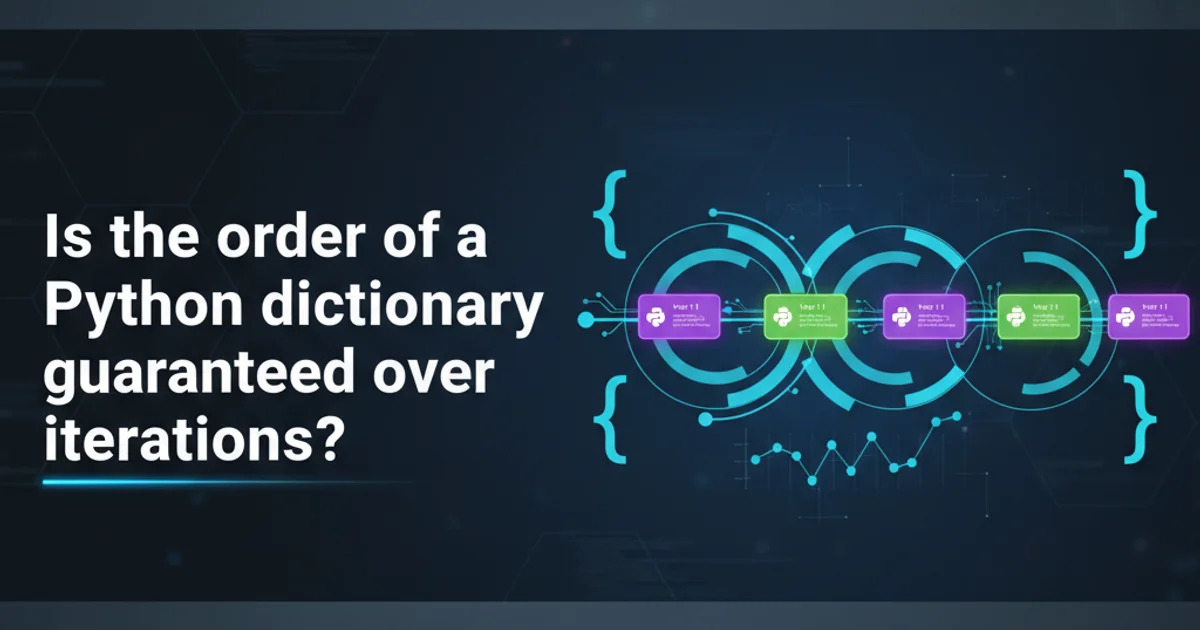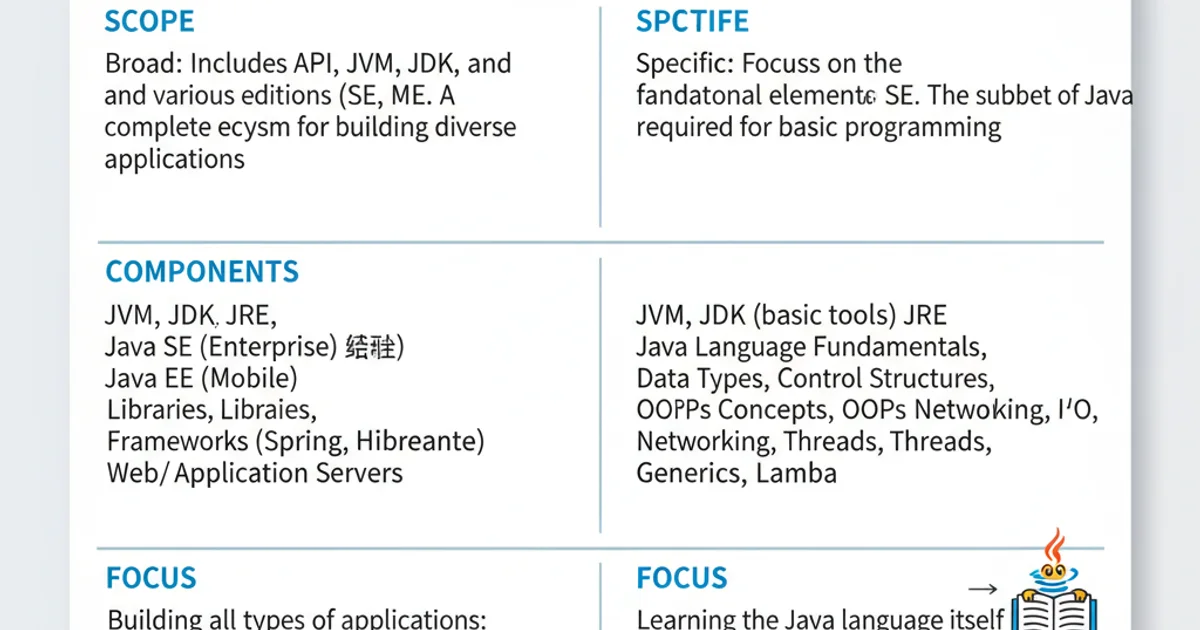What is the difference between java and core java?
Categories:
Java vs. Core Java: Understanding the Foundation and the Ecosystem

Explore the fundamental differences between 'Java' as a broad platform and 'Core Java' as its foundational programming language and APIs. This article clarifies common misconceptions and outlines what each term encompasses.
The terms "Java" and "Core Java" are often used interchangeably, leading to confusion, especially for newcomers to the programming world. While closely related, they represent different scopes within the vast Java ecosystem. Understanding this distinction is crucial for anyone learning Java or working with Java-based technologies. This article will break down what each term signifies, highlight their relationship, and clarify their respective roles.
What is 'Java'?
When people refer to "Java" without further qualification, they are typically talking about the entire Java platform. This encompasses much more than just a programming language. It includes:
- The Java Programming Language: The syntax, grammar, and keywords used to write Java code.
- The Java Virtual Machine (JVM): An abstract computing machine that enables a computer to run Java programs. It's the runtime environment that executes compiled Java bytecode.
- The Java API (Application Programming Interface): A vast collection of pre-written software components (classes and interfaces) that provide ready-to-use functionalities for common tasks, such as networking, database connectivity, GUI development, and more.
- Development Tools: Compilers (like
javac), debuggers, and other utilities provided in the Java Development Kit (JDK). - The Java Ecosystem: A massive community, frameworks (e.g., Spring, Hibernate), libraries, and tools built around the Java platform. This includes enterprise editions (Java EE/Jakarta EE), mobile development (Android), and various other specialized domains.
What is 'Core Java'?
'Core Java' is a subset of the broader Java platform. It specifically refers to the foundational components necessary for general-purpose application development. It focuses on the basic syntax of the Java language and the fundamental APIs provided by the Java Standard Edition (Java SE). Think of it as the building blocks upon which all other Java technologies are constructed.
Key aspects of Core Java include:
- Java Language Fundamentals: Data types, operators, control flow statements (if/else, loops), classes, objects, inheritance, polymorphism, interfaces, and packages.
- Basic APIs from Java SE:
java.lang: Fundamental classes likeObject,String,System,Thread,Math.java.util: Utility classes likeArrayList,HashMap,Date,Scanner.java.io: Input/Output operations for files and streams.java.net: Basic networking capabilities.java.sql: JDBC (Java Database Connectivity) for database interaction.java.awtandjavax.swing: Basic GUI development (though often superseded by modern frameworks).
In essence, Core Java is what you learn first when you start programming in Java. It provides the essential knowledge and tools to write standalone applications that run on the JVM, without delving into specialized domains like web development (Java EE/Jakarta EE), Android development, or advanced enterprise solutions.
flowchart TD
A[Java Platform] --> B[Java Programming Language]
A --> C[Java Virtual Machine (JVM)]
A --> D[Java API]
A --> E[Java Development Kit (JDK)]
A --> F[Java Ecosystem (Frameworks, Tools, Community)]
D --> G[Core Java (Java SE APIs)]
D --> H[Java EE / Jakarta EE APIs]
D --> I[Android APIs]
G --> J[Language Fundamentals]
G --> K[java.lang]
G --> L[java.util]
G --> M[java.io]
G --> N[java.net]
G --> O[java.sql]
subgraph "Core Java Focus"
J
K
L
M
N
O
end
B -- "Uses" --> C
B -- "Leverages" --> D
E -- "Contains" --> B
E -- "Contains" --> C
E -- "Contains" --> D
F -- "Built on" --> ARelationship between the Java Platform and Core Java
Key Differences Summarized
To solidify the understanding, here's a summary of the main distinctions:

Comparison of Java (Platform) vs. Core Java
In conclusion, "Java" is the overarching term for the entire technology stack, including the language, runtime, APIs, and ecosystem. "Core Java" is the fundamental subset focusing on the language basics and essential APIs from the Java Standard Edition, forming the bedrock for all other Java development. Mastering Core Java is the essential first step before venturing into more specialized areas of the Java platform.